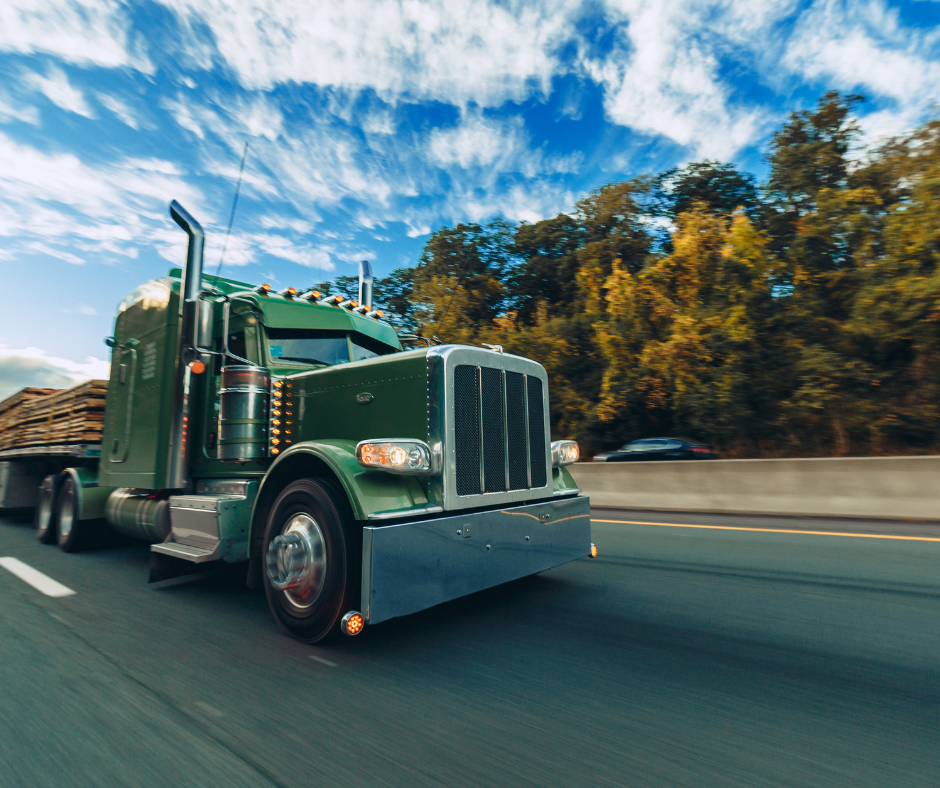What Are the Benefits and Challenges of Conestoga Equipment?
- Samantha Allen

- Feb 15, 2024
- 3 min read
Like all equipment types, Conestoga equipment comes with its own set of benefits and challenges to consider. In this blog, we will discuss the pros and cons of Conestoga trailers, the investment costs, and popular providers.

What is a Conestoga trailer?
When you hear the term “Conestoga”, you may picture a covered wagon from Little House on the Prairie. And while that may be true, the trucking industry’s definition is slightly different. A Conestoga is a flatbed trailer with a rolling tarp system that can be retracted for side loading or unloading. Essentially, a Conestoga acts as a flatbed trailer but eliminates the tarping process for the driver.
Conestoga trailers can come in different shapes and sizes such as standard flatbed, step-deck, or double drop. Common freight hauled on a Conestoga includes steel coils, building materials, small machinery, components, and more.
What are the benefits of a Conestoga trailer?
The most significant benefit of owning a Conestoga trailer is time savings. Some drivers claim that a Conestoga trailer can save them around two hours per day! That is significant in the world of trucking where time really does equal money. Tarping time can be reduced to less than 5 minutes with a Conestoga trailer.
Additionally, the tarping system helps mitigate the risk of damage to the freight by allowing the driver to cover the freight without ever touching it. Damages can occur with manual tarping due to the nature of strapping and tightening which can sometimes crush or bend the freight. Additionally, this reduces the driver’s need to perform physical labor to tarp a load. The rolling tarp system also protects from weather and debris that could potentially cause damage.
Although Conestoga trailers are continuing to gain popularity, there is still a limited supply in the market. Some shippers may prefer Conestogas or particular freight may require Conestoga equipment which can offer drivers more lucrative rates.
What are the challenges of a Conestoga trailer?
You can p guess that Conestoga’s aren’t perfect. Like any equipment type, they come with their challenges. A few things to consider when owning Conestoga equipment include:
Decreased fuel efficiency – a retracted tarping system acts as a parachute behind your trailer (this is a bit of an exaggeration, but an easy way to think about it!) which can reduce your miles per gallon.
Decreased weight capacity – a tarping system can add 1,500 to 3,000+ lbs to your trailer setup.
Limited dimensional capacity – oversized freight becomes more of a challenge when a frame surrounds your flatbed trailer. You will be more restricted on the size of freight you can haul.
Increased maintenance – the track and wheel system will require additional maintenance such as lubrication and repair with use.
Freight/Shipper limitations – while it may be true that some shippers prefer loading Conestoga’s, some do not. Shippers may avoid loading Conestoga equipment because of the risk of damages to the trailer or freight (bad forklift drivers = liability). Additionally, not all freight will work with a Conestoga which could limit available loads.
Initial Investment – purchasing a Conestoga kit can be costly. If you are a driver who hauls a lot of compatible freight that requires tarping, then you may see a quick return on your investment.
What does it cost to purchase a Conestoga trailer?
There are two methods to securing Conestoga equipment - purchasing an add-on kit for your flatbed trailer or purchasing a new/used trailer already set up with a rolling tarp system.
Adding a Conestoga kit to your current equipment is typically a cheaper option than buying a new or used ready-to-go Conestoga trailer. Some add-on kits can range from $10,000-$25,000 whereas new and used Conestoga trailers can range from $35,000 to $75,000.
Read our blog here to learn more about how you can finance equipment for your trucking business.
Who are popular Conestoga kit providers?
There are a few popular Conestoga kit providers in the market with varying prices and quality. Here are a few popular providers:
Interested in being notified when more blogs, free resources, products, or courses are available? Subscribe down below and you'll be the first to know!
Soshaul Logistics LLC and its affiliates do not provide tax, legal or accounting advice. This material has been prepared for informational purposes only, and is not intended to provide, and should not be relied on for, tax, legal or accounting advice. It is meant to serve as a guide and information only and Soshaul Logistics, LLC does not assume responsibility for any omissions, errors, or ambiguity contained herein. Contents may not be relied upon as a substitute for the FMCSA's published regulations. You should consult your own tax, legal and accounting advisors before engaging in any transaction or operation.




Comments